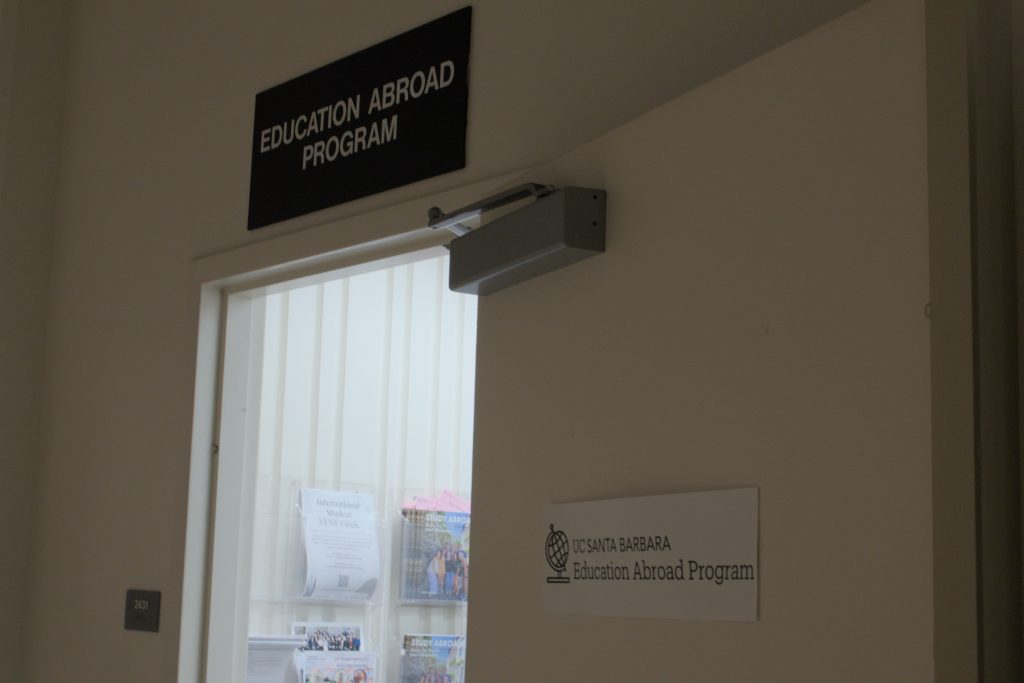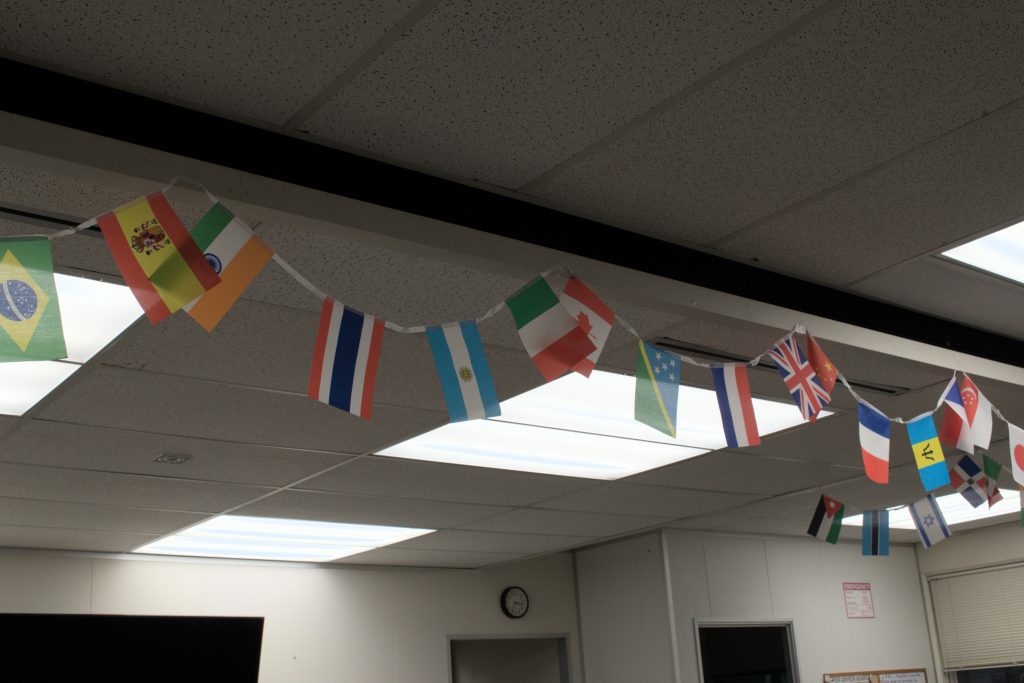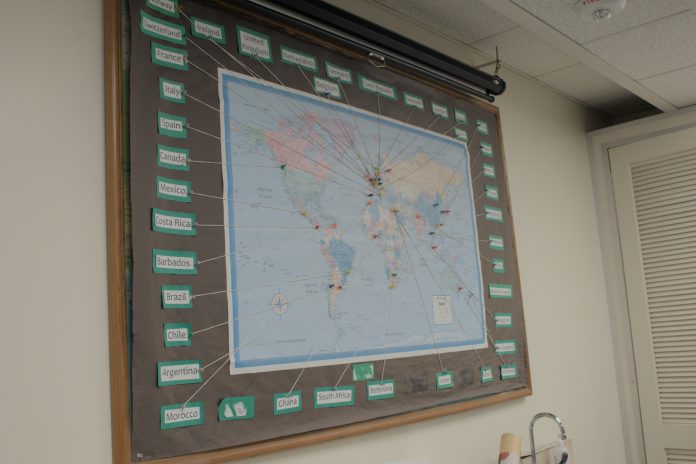Ellise Huston
Features Editor
Arguably, one of the greatest advantages of attending college is having the opportunity to leave that campus to study abroad in another country. Through the UC Education Abroad Program (UCEAP), students have the chance to study in over 40 countries, all of which offer multiple programs that can help fulfill one’s major requirements. But what is it like to study in a different country only to return to the small community of Isla Vista (I.V.)? Or, what is it like to come from another country to attend UC Santa Barbara (UCSB) or Santa Barbara Community College (SBCC) for a year? Students have offered to share their stories from abroad, whether they have already gone or are currently away!
Cole Fox, a fourth-year UCSB student and biopsychology major, recently returned from her spring quarter abroad in London, England and Paris, France. This fall quarter is her first quarter back at UCSB after her studies in Europe, and she is reacclimating to home and I.V. However, she is finding it to be much different now that she is back.
“It was weird being back home with parents after traveling the world by yourself,” remarked Fox during an interview with The Bottom Line (TBL). Regarding I.V., Fox explained, “Getting used to living in a big city, constantly being around the hustle and bustle, and then coming back to I.V. where people were chilling at the beach was definitely different.”
But it’s not just living in a small town consisting of a few blocks of housing, but the courses as well. As a part of the Science, Technology, Engineering, and Math (STEM) majors, Fox rejoined her UCSB courses to find they were more demanding than those she took abroad.
“I jumped straight into taking an organic chemistry lab and I had forgotten about this sort of stress,” said Fox. The courses she took abroad were mainly General Education (GE) courses. She also mentioned that the classes abroad were more immersive than the ones she had taken at UCSB: “We would learn about the British Museum and then we would walk there. It is easier to understand the places you are learning about when you’re right there.” Still, Fox explained that she had a lot of motivation in her lab because she was returning to courses for her major.
Along with Fox, fourth-year UCSB student Reilly Dicker also went abroad to London, England and Paris, France. As a communications major, the courses Dicker took abroad did fulfill her major requirements, but she didn’t let that stop her from gaining all the cultural experiences she could while abroad. Dicker told TBL that she and the friends she had made while abroad “had a good balance going,” as they traveled Europe on weekends.

While many students are returning to their homes in I.V. from abroad, others are just beginning their experience and have chosen I.V. as their place to live whilst studying abroad. 20-year-old Tyra Hageus has traveled from Stockholm, Sweden to spend a year in the California sun. After hearing about the I.V. community, its nightlife, and the people, she attended SBCC and made a home in I.V. for a year.
“I heard about Isla Vista and heard it was a pretty fun party place,” Hageus told TBL. Though I.V. is not a big city, Hageus agrees that it is still known for its nightlife. “It was a good combination of a good school and a good social life.”
The schooling, however, is much different from Hageus’s home in Stockholm. “There’s a lot more work here than in Sweden,” said Hageus. “In Sweden, we don’t have homework, we only have exams.” Despite the workload, Hageus still believes the university system in the United States is somewhat easier than what she is used to at home. Another student, third-year geography major Anna Zerouali, who has come to UCSB from London to study abroad, believes the school system in the United States is much different than in Europe. Similarly to Hageus, Zerouali mentioned that, though the classes are somewhat easier than at King’s College in London, the workload is heftier.
Along with schoolwork, these students who have traveled to I.V. have remarked on the public transportation in California versus countries abroad. Hageus said, “I feel like [in California] you need a car for everything.” In an interview with TBL, Zerouali also commented, “I lived in cities where the transportation was really good, so this is also a lot. I don’t drive. I can’t travel by train because the train takes so long, and the flights are so expensive.”
Even still, both Hageus and Zerouali noted that they loved the sunny beach weather in Santa Barbara, which contrasts the winter weather currently in their hometowns.
Regardless of where these students have traveled to or from, they have all mentioned that going abroad is an experience that allows for one to grow up and begin to undergo a life on their own. After being in London with family and attending college there, Zerouali said now, “It feels like I’m here to grow up finally. In London, I had my security blanket.” In I.V., they are living and studying on their terms.

Feeling like they are growing up in a new country isn’t the only thing many of these students had in common. The kicker is, those who have gone abroad said along the lines of the same thing: their favorite part about studying far from home was the people they met and their new cultural understandings. The lifelong friendships made have solidified such amazing abroad experiences for them.
Studying abroad offers so much that cannot always be found within the confines of I.V. While everyone’s experiences are different, each of these students wouldn’t have changed them, and better yet, would love to go again. Regardless of major or year, studying abroad is an experience you are not likely to regret.
As Dicker told TBL at the end of her interview, “If you are able to go abroad, I say do it. I have always been someone with separation anxiety and I almost didn’t go, but I am so happy I did. It was so amazing.”











